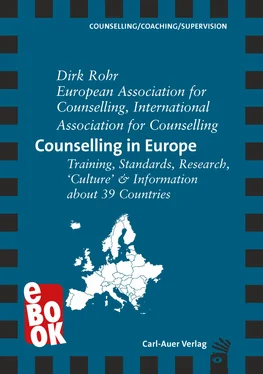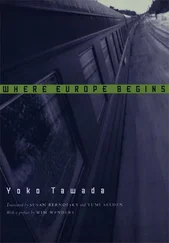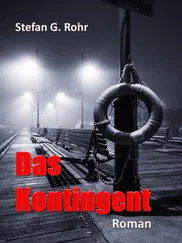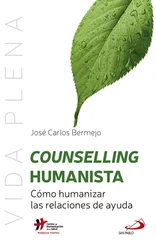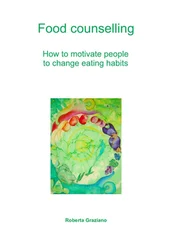The goal has been to attempt to honour accreditation in the setting of standards for counselling across Europe.
The European Association for Counselling Synopsis of the History of Counselling
The emergence of the counselling profession could be said to be a twentieth-century phenomenon. Throughout the evolution of peoples, there have been healers for those who were emotionally traumatised. These included oracles, high priests, witch doctors, leaders in established religions and medical professionals. Because of the enormous sociological and cultural changes that swept Western Europe and the United States in particular, from the last half of the nineteenth century, the need for an additional and more specific professional response made itself felt. Professional family care started in the United States as early as 1877. Standardisation of the family social-work response had to come and was in place by 1911. It was in this Social Science working response that counselling techniques had their origins.
Theoretically, counselling training has its roots in philosophy, psychology and social science. It is broad-based and has drawn from a broad spectrum of scientific research. Buber’s concept of the 'I-Thou' relationship has been one of the fundamental philosophical underpinnings. At the turn of the nineteenth and twentieth centuries, Freudian psychoanalysis and its variations spread north to Germany, south to Switzerland and across the Atlantic to the United States. The early twentieth-century behaviourism of Pavlov, Watson and Skinner was influential in forming therapies for addictions.
The first university course on couple counselling was established in 1937. In 1943 the first training manual in counselling for social workers was published. The decade of the 1930s saw the setting up of Hirschfeld marriage consultation bureaux in Germany, Austria, Switzerland, and the Netherlands and the Scandinavian countries. In the countries where Hitler gained control, he annexed these bureaux to his evil purposes. Fortunately, as first conceived, these bureaux’s work continued in the United States, Britain, and Eastern European countries such as the Czech Republic, beyond Hitler’s reach. The centre in Prague was closed down in the communist putsch in 1948 and re-established again in 1967. The work done includes premarital, marital, post-divorce, parenting, psychological problems, and psychological assistance in life crises and problems in relationships with colleagues, neighbours and friends.
There are several theoretical bases and specialisations, which deal with particular presenting problems. What do these variously described approaches have in common?
Counselling has a role in child development, education, physical and mental health, and minority populations. In its position in the coming century, it is possible to see the profession as the conduit of an intrapersonal and interpersonal revolution that can facilitate the human person’s full development in a balanced society. This needs safe boundaries around such a task. A clear charter for ethical practice and accreditation guidelines and training must be agreed upon and disseminated across National boundaries. To this end, the European Association for Counselling sets out its criteria for those wishing to acquire the European Certificate in counselling.
The core value of the Charter is respect for human rights and differences. The attitudes that characterise the counselling approach are respect, integrity, authority, responsibility, autonomy, confidentiality, and competence. In the delivery of Practice, this leads to the skills of contracting, setting and maintaining boundaries, being explicit and open, monitoring the process and maintaining appropriate levels of privacy.
2.3 Definition of Counselling
Counselling: is an interactive learning process contracted between counsellor(s) and client(s), be they individuals, families, groups or institutions, which approach holistically, social, cultural, economic and or emotional issues.
Counselling may address and resolve specific problems, make decisions, cope with crisis, improve relationships, develop developmental issues, promote and develop personal awareness, work with feelings, thoughts, perceptions, and internal or external conflict. The overall aim is to provide clients with opportunities to work in selfdefined ways, towards living in more satisfying and resourceful ways as individuals and as members of the broader society.
2.4 Charter for Ethical Practice
Introduction
The general ethical framework for EAC members is based on a set of philosophical principles.
Organisational and individual members of the EAC are expected to adhere to this Charter. The text takes into account issues that can be foreseen in the Practice of Counselling. Each member has to devise and monitor specific standards and rules, which consider and respect existing laws and their country’s particular social and cultural norms. The principles outlined on these pages guide counselling and associated activities
Philosophical Principles
A counsellor’s values are based totally on respect for frequent human rights cultural differences.
The values underpin a set of attitudes and skills, especially regarding the client’s integrity, authority, and autonomy.
RESPECTis the unconditional acceptance of clients but not necessarily acceptance of all of their behaviour. Counsellors have a responsibility for making themselves aware of individual and cultural differences.
INTEGRITYhonours the client’s right to maintain their physical and emotional boundaries and the right not to be exploited in any way.
AUTHORITYrecognises that entering a counselling relationship is vested in the client whether the counselling is by direct or indirect assignment.
AUTONOMYacknowledges the client’s freedom to express themselves, their needs and their beliefs within the boundaries of a shared respect for universal human rights and individual and cultural differences.
PRIVACYprotects the counselling relationship from uncontracted observation or inappropriate observation, interference or intrusion by others.
CONFIDENTIALITYrespects personal information disclosed within a trust relationship and protected that information from inappropriate disclosure to others.
RESPONSIBILITYrequires the counsellor to actively ensure the observance of the fundamental philosophical principles outlined above in the service provided through the counselling relationship.
COMPETENCEis the requirement for counsellors to ensure and maintain high standards of Practice in their work. Counsellors should provide only those services and use only those qualified techniques gained via education, training or experience.
Ethical Framework
In the counselling relationship, the counselling approach values the client’s integrity, authority, and autonomy, expressed in a skilled and professional way.
Counsellors are responsible for the quality of work they do with clients by:
• They are acting according to professional standards of competence.
• They are maintaining confidentiality.
• They are open and explicit with clients about the counselling process.
• They Engage only in activity in which they have the expertise and in which they can act independently and objectively.
• They are remaining within the boundaries of the counselling role.
• Ensure they receive adequate Supervision of the counselling work.
• They continue their own personal and professional development as Counsellors.
• They are establishing, maintaining and monitoring a clear counselling contract.
Читать дальше
